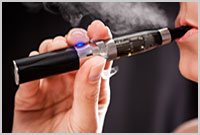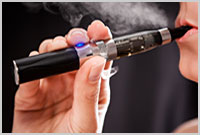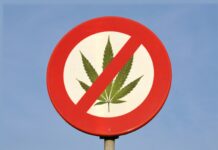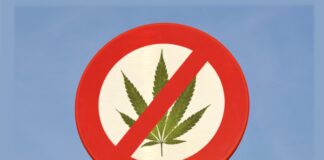September 27, 2019
 Updated data provided today by the US Centers for Disease Control reports over 800 cases of acute respiratory distress linked to the use of portable vapor cartridges used to consume certain e-liquids.
Updated data provided today by the US Centers for Disease Control reports over 800 cases of acute respiratory distress linked to the use of portable vapor cartridges used to consume certain e-liquids.
According to the latest totals, “Among patients with data on substances used in e-cigarettes, or vaping products, tetrahydrocannabinol (THC)-containing product use was reported by 76.9 percent (36 percent reported exclusive THC-product use); 56.8 percent reported nicotine-containing product use (16 percent reported exclusive nicotine-product use).”
To date, 13 deaths have been reported.
Officials report that the majority of incidences appear to be linked to the purchase of counterfeit products obtained from unregulated, “informal” vendors. An in depth investigation into this underground market is available from Leafly.com here.
Of the products tested thus far by the US Food and Drug Administration, about half have identified the presence of Vitamin E acetate, the New York Times reports. The inhalation of vitamin E oil has previously been linked with lipoid pneumonia.
Leafly.com has previously reported that additives like Vitamin E were recently introduced to unregulated oil products in an effort to thicken their consistency and to mask dilution. A report issued earlier this month by New York State health officials identified “very high levels of vitamin E acetate in nearly all cannabis-containing [vapor cartridge] samples analyzed.”
Most recently, an investigation by NBC News analyzed 18 different THC vapor cartridge products. Their analysis concluded: “Of the three purchased from legal dispensaries in California, the CannaSafe testing company found no heavy metals, pesticides or residual solvents like vitamin E. But 13 out of the other 15 samples from black market THC cartridges were found to contain vitamin E.”
In addition, “CannaSafe also tested 10 of the unregulated cartridges for pesticides. All 10 tested positive.”
NORML has long emphasized the variance in the safety and the quality of cannabis-related products available on the unregulated market versus those on the state-regulated retail market, stating, “Consumers must also be aware that not all products are created equal; quality control testing is critical and only exists in the legally regulated marketplace.” NORML has also called for increased oversight and regulatory standards with regard to liquid THC and CBD delivery devices. A recent Associated Press investigation reported that one-third of commercially marketed CBD products tested positive for the presence of synthetic, psychoactive adulterants while others tested negative for any presence of CBD
The CDC reports that their investigation remains “ongoing,” and that the “specific chemical exposure(s) causing this outbreak is [still] unknown at this time.”
In response to the incidences, Massachusetts Gov. Charlie Baker this week instituted an emergency ban on the retail sale of all vapor cartridge products. The retail ban took immediate effect and will remain in place until January 25, 2020. Massachusetts in the first state to enact an explicit ban on the sale of any type of vaping-related product.
Further information is available from NORML online here, here, and here. California NORML’s fact-sheet, “Cannabis Vaping: What’s Safe and What’s Not,” is online here. An advisory by Leafly.com, entitled “Vape Pen Lung Disease: Here’s What You Need to Know,” is online here.











